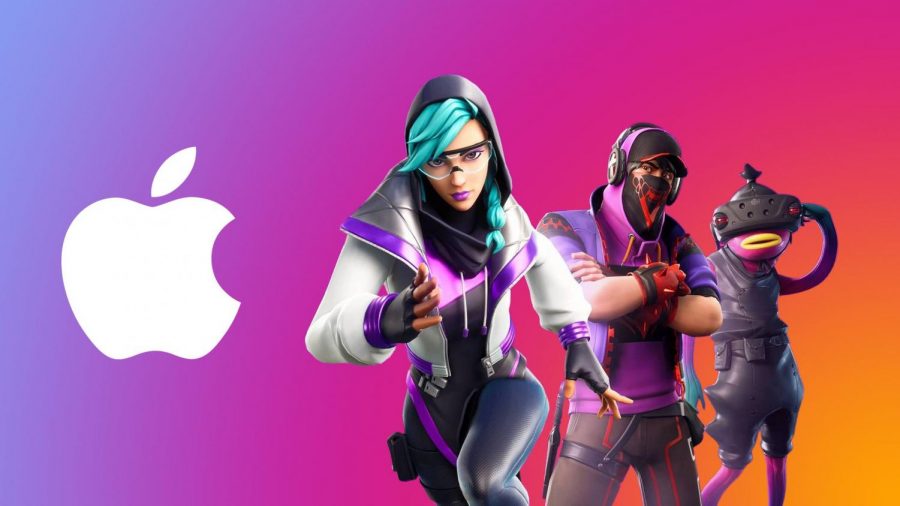Apple, Epic battle over app fees
Tech conglomerate Apple and the creator of popular video game “Fortnite,” Epic Games, are currently engaged in a landmark courtroom battle that will determine the fate of pre-loaded app store ecosystems after Epic attempted to circumvent Apple’s 30 percent in-app purchase fee.
“Epic violated the terms of its developer agreement when Epic implemented a payment system in the game that enabled players to circumvent Apple’s App Store,” an article from Business Insider stated. “Epic says the App Store is a monopoly, and argues that iPhones and iPads are no different from computers.”
Epic Games had implemented in an August 2020 “Fortnite” update a method to purchase in-game currency at a discount directly from them. In an immediate retaliatory measure, Apple took “Fortnite” off the App Store, following which, Epic Games filed a lawsuit against Apple.
Epic’s argument was that Apple’s App Store had essentially become a private ecosystem revolving around greed and profit, as companies that host their apps on it, such as Epic Games, are unjustly being robbed of their money. They say that Apple’s 30 percent cut is too much relative to the services, like quality control, that Apple provides to developers.
The company lawsuit alleges antitrust violations against Apple with regards to the app distribution market for iOS devices and the in-app purchase processing market. Thus, should Epic games succeed, developers will be able to release their own games on third-party app stores for the iPhone, and will be able to facilitate in-app purchases independently of Apple.
However, this is a huge reach, and it seems rather reasonable that Apple takes a portion of profits, as they provide a large, well-maintained platform for companies like Epic to easily upload their app; without the App Store, these companies would not even have a place to promote and sell their software.
And while some argue that Apple should simply release their monopoly hold and allow other developers to introduce their own app stores for iOS devices, it would be extremely difficult to establish a proper application store that combats pirating and is secure as Apple’s.
Epic Games responded to this by pushing the fact that the fee constitutes almost a third of their revenue, which cuts into their profits immensely.
At this point in the lawsuit, both parties seem to be extremely desperate for the upper hand, especially as this case represents a pivotal moment in tech history. After all, if Epic Games succeeds, there’s a case for making all devices, especially game consoles like the XBox and Nintendo Switch, open to third party app stores.
Because of the case’s potentially far-reaching impact, other parties have joined the fray, including popular game Roblox. Roblox, which is available on many platforms, has allowed users to purchase their “Robux” on any platform–PC, iPhone or otherwise–for a long time, with currency being transferable across platforms. Epic argues that due to Fortnite’s “hidden stories, cosmetics, and community,” their creation is no longer just a mobile game, and therefore, they should be able to let users buy their in-game currency elsewhere, just like Roblox.
“Roblox is an online platform and storefront where users go to play games,” the company stated. “Roblox is not a game, it is a place where people play games made by other developers.”
However, Roblox’s user-developers are actually paid, while Fortnite cannot say the same about its app. Fortnite revolves mainly around its battle royale game-mode, and its “creative” game-mode is more like a secondary addition that allows random players to build small minigames.
It’s evident through these flimsy arguments that Epic Games currently holds a very weak case against Apple, and its examples show its desperation to win this money-grab of a lawsuit. So far, unless some new, monumental evidence comes to light, it seems that Epic will lose and Apple will walk out of this conflict with an even stronger case for its private App Store ecosystem and its heavy-handed policies.
Your donation will support the student journalists of Diamond Bar High School. Your contribution will allow us to purchase equipment and cover our annual website hosting costs.



